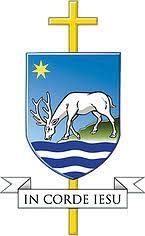Corpus Christi & Eleventh Sunday in Ordinary Time - Year A
The Body and Blood of Christ - THE GREATEST GIFT
Perhaps the greatest gift that Jesus left behind to his fledgling Church, apart from the example of his own teaching, life and death, was the Eucharist. With justification, the Eucharist is often spoken of as the very centre of Christian living. There is a very real danger for Christian communities of collapsing or degenerating when deprived of the Eucharist for any length of time. No one can in effect remain a committed Christian without participation in the Eucharist.
Every persecuted Church realises this and struggles to keep the Eucharist alive in its communities. We have seen that in countless examples over the centuries, including our own. We have seen how Catholics in China went to enormous lengths to celebrate the Eucharist in spite of appalling difficulties.
In Ireland, people will point out lonely outcrops known as “Mass rocks” in remote parts of the country where persecuted Catholics secretly celebrated the Eucharist at the risk of death. In England, you will be shown the hiding places for priests on the run who went from house to house to provide the Eucharist for Catholics who risked martyrdom if they were discovered celebrating the “Popish Mass”. It is sad, then, to find in our persecution-free societies today how many have lost this sense of the centrality of the Eucharist in Christian living.
What do we do at the Eucharist? Basically we do two things: we remember (in the Jewish sense of the word) we give thanks and we offer a sacrifice of worship to the Father. We remember with deep gratitude all that God has done for us in Jesus Christ, through his life, suffering, death and resurrection. He is the Lamb. We also remember and give thanks for all our own personal experiences of God’s love at work in our lives. It is a time to count our blessings. And we remember and give thanks not only for what happened a long time ago but most especially for what is happening in our lives at this time. We come together to celebrate our being a community and a fellowship in Christ.
Today is the feast of the Body and Blood of Christ. When we approach the altar to receive the Eucharist, the priest says, “The Body of Christ”. When we respond with our “Amen” of assent in faith, we need to be aware that the Body we are receiving is that Risen Body of Jesus. ‘Communion’ is not just with Jesus but also with all those around us. That is why, before this ‘Communion’ we need to say the Lord’s Prayer in which we ask forgiveness of those we have offended. Of course, it is difficult to have a sense of sharing in the one loaf as the sacrament of one Body, if, in fact, we are not one body. If we are not already a community before we enter the place where the Eucharist is being celebrated, we are not suddenly going to become a community after we come in. That is why Our Lord offers us His grace in the sacrament of Reconciliation. A parish gets the Eucharist it deserves. Poor community, poor Eucharist.
So our celebration of the Eucharist, of the Body and Blood of Christ, is not simply a sentimental commemoration of what happened to the ‘historical’ Jesus 2,000 years ago. It is – in a Jewish spirit of remembrance and thanksgiving – a celebration of what makes us what we are today. We today live, as Paul told the Philippians, sharing in the sufferings of Christ, becoming like him in his death and experiencing the power of his resurrection. The Eucharist is the celebration of a living Body, of which we are a part. It is up to us, with the help of Jesus, whether – to use the other image of Jesus – we are living branches on the parent Vine, or whether we are dying branches that need to be lopped off and thrown away as unfruitful. (John 15:6)
The Catechism of the Catholic Church (1324-1327), states that, The Eucharist is "the source and summit" of the Christian life because it is the "sacrament of love." Primarily, of course, this means it is the sacrament of love for us. The Eucharist, is the sacrament of love for God and for our neighbour. Through charity, we embrace God Himself, who is love. By offering ourselves to God through our union with Him in the Eucharist, our love for God reaches a climax: we give ourselves to God in the only way possible-through the Father's own Son, Jesus. In this way, God's gracious invitation to communion with human beings is answered through communion with the Eucharistic Christ. The more we grow in this awareness of the real presence of Jesus in the Eucharist, in the Tabernacle and His living and acting through each one of us, the more meaningful will be our communion with each other be.

